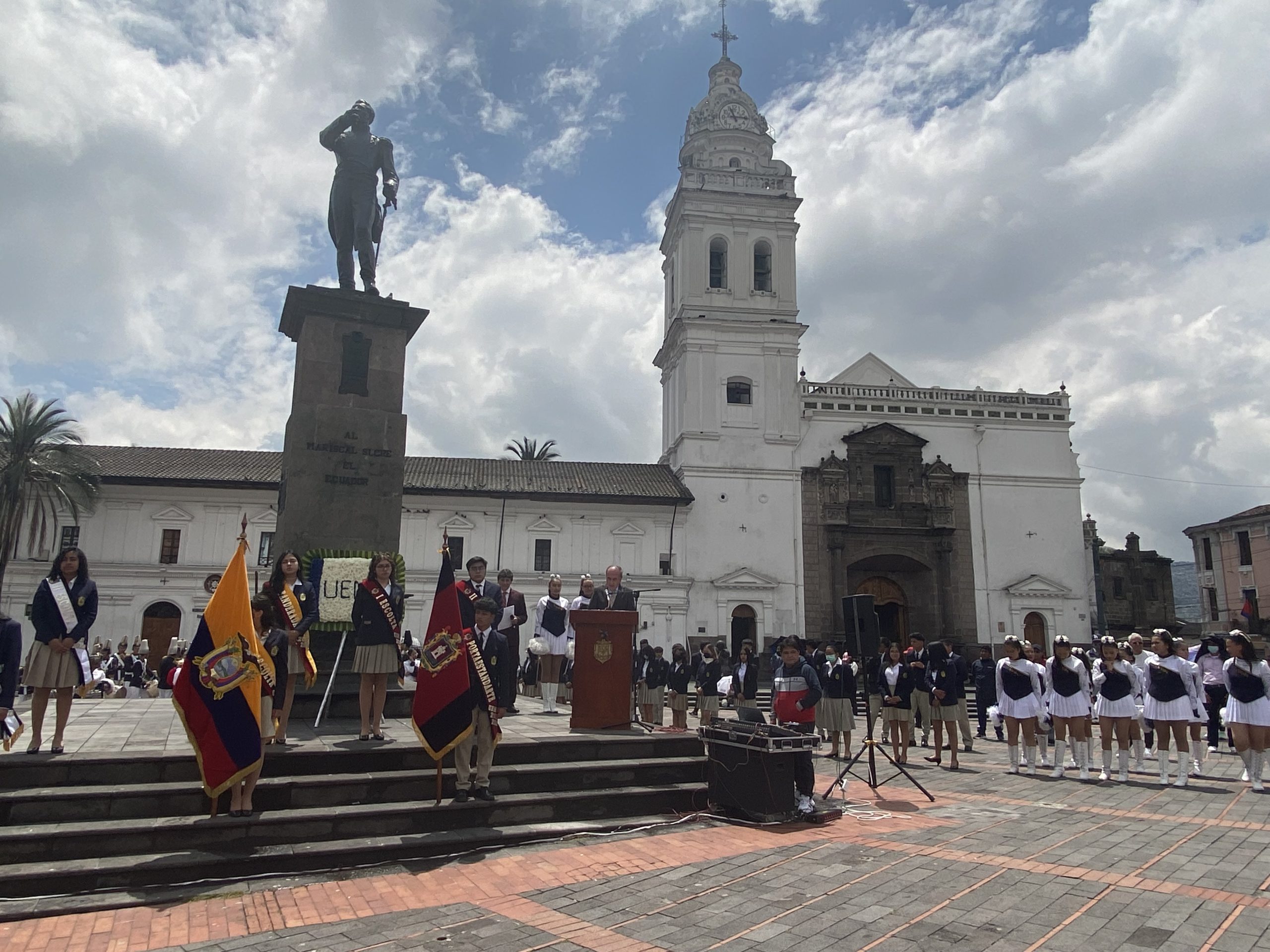To provide a comprehensive insight into his life and work, we've put together this guide. We've analyzed his military campaigns, his political career, and his legacy as a liberator. We hope that this guide will help you to understand the significance of Antonio Jose de Sucre's contributions to South America.
Frequently Asked Questions (FAQs)
This FAQ section provides comprehensive answers to common queries and misconceptions surrounding Antonio José de Sucre, the renowned general, statesman, and liberator of South America.

Túpac Amaru - The Liberator of South America : r/imaginarymaps - Source www.reddit.com
Question 1: What were Sucre's most notable achievements?
Sucre played a pivotal role in the liberation of South America from Spanish colonial rule. He commanded the Patriot forces to victory at the Battle of Ayacucho in 1824, decisively ending Spanish rule in Peru and securing independence for the region.
Question 2: What were Sucre's political and diplomatic contributions?
After the military victories, Sucre served as president of Bolivia and Grand Marshal of Peru. He played a crucial role in drafting constitutions for both countries, establishing republican governments and promoting stability.
Question 3: What was Sucre's role in the Gran Colombia federation?
Sucre was a close associate of Simón Bolívar and supported the idea of a unified South America under the Gran Colombia federation. He served as Vice President of Gran Colombia and played a vital role in maintaining its unity.
Question 4: What were Sucre's educational and intellectual interests?
Sucre had a keen interest in education and intellectual pursuits. He studied mathematics, history, and law, and was a prolific writer and translator. He believed in the power of knowledge to empower citizens.
Question 5: What were the key characteristics of Sucre's military leadership?
As a military leader, Sucre was renowned for his strategic genius, tactical brilliance, and courage under fire. He emphasized discipline, unity, and collaboration among his troops.
Question 6: How is Sucre remembered and honored today?
Sucre's legacy continues to inspire generations of South Americans. His name is commemorated in cities, streets, institutions, and monuments across the region. He is widely recognized as one of the greatest heroes of South American independence.
In summary, Antonio José de Sucre's military prowess, political wisdom, and intellectual contributions played a vital role in shaping the course of South American history and establishing the independent nations that exist today.
Tips by Antonio Jose De Sucre: General, Statesman, And Liberator Of South America
Antonio Jose de Sucre was a prominent military leader, statesman, and liberator who played a pivotal role in South America's independence from Spanish rule.

Image (5) – Quito Informa - Source www.quitoinforma.gob.ec
Tip 1: Be decisive
Sucre was known for his quick thinking and decisive actions. He understood the importance of seizing opportunities and taking calculated risks to achieve his goals.
Tip 2: Value education and knowledge
Sucre was a well-educated man who believed that education was essential for personal and societal progress. He promoted the establishment of schools and universities to foster intellectual growth and enlightenment.
Tip 3: Foster unity and collaboration
Sucre recognized the power of unity and collaboration in achieving common goals. He worked tirelessly to build alliances and bridge differences among the various factions involved in the independence struggle.
Tip 4: Be adaptable and resilient
Sucre faced numerous challenges and setbacks throughout his military career. However, he remained adaptable and resilient, constantly adjusting his strategies and tactics to overcome obstacles.
Tip 5: Seek justice and equality
Sucre was a strong advocate for justice and equality. He believed that all people, regardless of their race or social status, deserved the same rights and opportunities.
Tip 6: Lead by example
Sucre was a charismatic and inspiring leader who led by example. He was admired for his courage, integrity, and unwavering commitment to the cause of freedom.
Tip 7: Plan meticulously
Sucre was a meticulous planner who carefully considered all aspects of his campaigns. He believed that thorough planning was essential for success in both military and political endeavors.
Tip 8: Embrace diversity and inclusion
Sucre recognized the value of diversity and inclusion. He worked to build a united and inclusive society that embraced people from all backgrounds and cultures.
By following these tips, individuals can emulate the leadership qualities and strategies of Antonio Jose de Sucre, a prominent figure in South American history and a symbol of courage, determination, and unwavering commitment to the cause of freedom.
Antonio Jose De Sucre: General, Statesman, And Liberator Of South America
Antonio Jose de Sucre was a prominent military leader, statesman, and a key figure in the South American independence movement.
- Military Genius: Sucre was a brilliant military strategist and tactician.
- Liberator of South America: He played a crucial role in liberating several South American nations from Spanish rule.
- First President of Bolivia: Sucre served as the first president of Bolivia.
Sucre's military prowess was evident in his decisive victories at the battles of Pichincha (1822) and Ayacucho (1824), which secured independence for Ecuador and Peru, respectively. He also played a significant role in drafting Bolivia's constitution, which emphasized social equality and education.
Antonio Jose De Sucre: General, Statesman, And Liberator Of South America
Antonio Jose de Sucre played a pivotal role in the independence of several South American nations, including Bolivia, Ecuador, Colombia, and Peru. His military prowess, diplomatic skills, and dedication to republican ideals earned him the respect of his contemporaries and cemented his legacy as a key figure in the liberation of South America.

Manual LA Milagrosa - ANTONIO JOSÉ DE SUCRE CORPORACIÓN UNIVERSITARIA - Source www.studocu.com
Sucre's leadership and military acumen were instrumental in the Battle of Ayacucho in 1824, which effectively ended Spanish rule in South America. As a general, he exhibited a rare combination of tactical brilliance and strategic vision, consistently outmaneuvering his opponents and securing victories for the independence cause.
Beyond his military accomplishments, Sucre was also a respected statesman. He served as President of Bolivia from 1825 to 1828, during which time he oversaw the establishment of a stable government and implemented reforms aimed at improving education, infrastructure, and the economy. His diplomatic efforts were equally significant, contributing to the formation of the Gran Colombia federation and fostering unity among the newly independent nations.
Sucre's legacy as a liberator extended beyond the battlefield. As a strong advocate for republican ideals, he sought to create just and equitable societies based on the principles of democracy and human rights. His influence shaped the political landscape of South America, helping to establish democratic traditions and institutions that continue to shape the region today.
In conclusion, Antonio Jose de Sucre's contributions as a military leader, statesman, and liberator were instrumental in the independence and development of South America. His unwavering commitment to republican ideals, combined with his military prowess and diplomatic skills, left an enduring mark on the region, inspiring future generations and solidifying his place as one of the most influential figures in South American history.